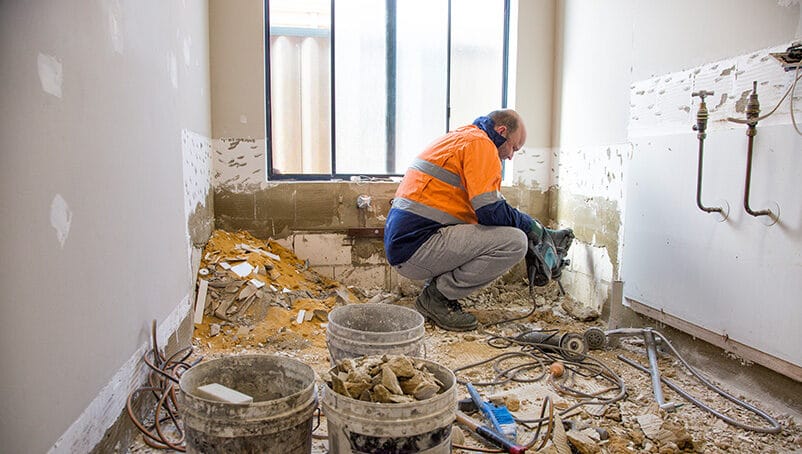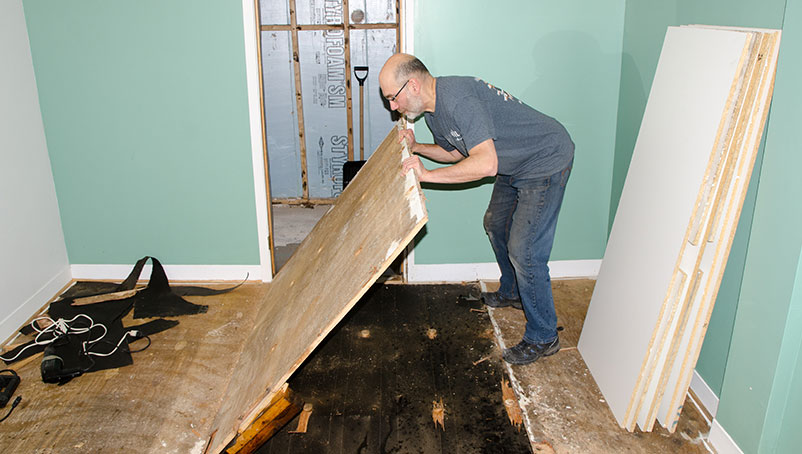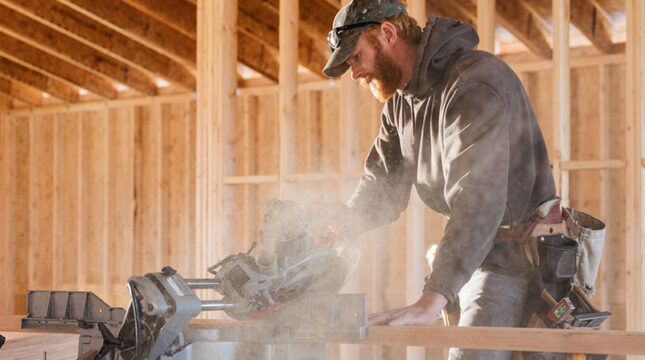4. Account for a change in weather
Ensure you and your employees know any weather conditions that may affect your jobsite. Frozen water pipes that later burst and cause a huge mess are the most common source of water damage in cold weather. If water isn’t coming out of the taps, that’s not a good sign.
While you can’t control how a homeowner tries to prevent frozen pipes, ensure you and your employees don’t use propane or kerosene heaters or an open flame device to thaw the pipes once you’re on the scene. A potential fire could be much worse than burst pipes.
Heavy rain and wind can also be problematic for various jobs — especially exposed roofs, walls and foundational work. Ensure any tarping covers the area without gaps or sagging. Create an overlap of several feet to ensure water seepage doesn’t get under and into seams.
Weather monitoring should include daily updates as well as noting any sudden changes. Materials and contingency plans should be ready to implement at a moment’s notice to account for sudden changes in the weather like hail, thunderstorms and freezing.
5. Respond quickly to water damage
If a water leak occurs, a prompt response can drastically reduce the damage and cost of an incident. Have a plan in place to prepare you for an incident. Give your client after-hours contact information so you’re easy to reach in an emergency and keep all repair tools and equipment easily accessible in case you need to respond in a hurry.
For example, if you’re a plumber and you accidentally disconnect a client’s dishwasher intake hose and it leaks overnight, make it your priority to set it right as soon as you realize what’s happened.
What to do if you have to file a water damage insurance claim
Even if you and your employees do all you can do to prevent water damage from happening, accidents and unexpected incidents can happen. Business insurance can help cover related costs for repairs. Here’s what to do:
Step one: Determine the source of the water and stop the flow
Find the source of the water damage and stop it if possible. For example, if it’s a burst pipe, turn off the water supply to that area or the main water supply to your property.
Ensure safety — if electrical risks are present, turn off the affected area’s electricity. Evacuate and notify authorities if the water leak is severe or threatens the property’s structure.
Step two: Document the damage
Take photos or videos of the affected areas and any damaged items. Capture any water-related damage, such as damaged walls, furniture, appliances, water-logged items and rusted property.
This documentation will be essential when filing an insurance claim. It can serve as evidence of the extent of the damage.
Step three: Reduce further damage
Most insurance companies will only cover the initial water damage claim. Act quickly to prevent the water from spreading and causing additional damage.
- Use towels or mops to soak up standing water
- Use buckets to collect water from roof leaks
- Air out the space
- Remove or place plastic sheets or tarps to cover furniture, equipment, or any valuable items
- If a broken door or window caused the water damage, board it up
Step four: Talk to your insurer
Contact your insurance provider about the situation as soon as possible to start the claims process. Tell them about all the damage and include every detail of the complaint made by a customer.
Some insurance companies will require you to call to report a claim. Others (like NEXT Insurance) will enable policyholders to file a claim online through an online form, virtual assistant or mobile app.
When you make a water damage claim, your insurer will investigate the claim to confirm what happened. Once the claim review is complete, your insurance adjuster will let you know if it is approved or denied.
How NEXT Insurance protects you from water damage expenses
Part of being prepared is having appropriate insurance coverage, such as general liability insurance, which will help pay for residential or commercial property damages. Errors & omissions insurance can help pay for alleged work oversights that cause a client a financial loss. It also helps cover the costs to defend your business or fix the problem.
NEXT specializes in helping construction professionals find the right coverage at an affordable price with our painless online process. Answer a few basic questions about your business to get an instant quote, explore coverage options and access your certificate of insurance.
Start an instant quote today.







